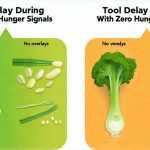The digestive system is a remarkably efficient machine, generally working behind the scenes without much conscious thought on our part. We expect food to move through us relatively seamlessly, leading to regular bowel movements that signal overall health and wellbeing. But life happens – busy schedules, travel, stress, or simply choosing to delay responding to nature’s call can disrupt this delicate process. Often, when we habitually skip a post-meal movement (the urge to defecate shortly after eating), it can result in hard stool episodes, creating discomfort and potentially leading to more significant digestive issues down the line. This isn’t necessarily an indication of a serious underlying condition, but understanding why this happens and what steps you can take is crucial for maintaining comfortable and consistent gut health.
Ignoring that initial urge after eating isn’t just about postponing a trip to the bathroom; it impacts the very mechanics of digestion. As food travels through your digestive tract, water is absorbed, solidifying waste material. The colon’s primary function is to reabsorb water from undigested food matter. When stool sits in the colon for an extended period – because we’ve consistently delayed elimination – more water gets reabsorbed, making it harder and more difficult to pass. This creates a vicious cycle: harder stools lead to more straining, which can further contribute to constipation and discomfort. It’s important to remember that our bodies are designed to eliminate waste relatively soon after eating, leveraging the natural digestive rhythm.
The Physiology of Post-Meal Movement & Delayed Elimination
The gastrocolic reflex is a powerful physiological phenomenon at play here. This naturally occurring reflex stimulates colonic motility (movement) in response to food entering the stomach and duodenum. Essentially, when you eat, your gut says “time to make room!” triggering contractions that propel waste towards the rectum. This explains why many people experience the urge to defecate soon after a meal – it’s not just coincidence, but an intrinsic part of how our digestive system functions. Consistently suppressing this reflex disrupts the natural rhythm and can weaken its effectiveness over time.
The colon isn’t simply a passive storage container; it actively works to compact waste material for elimination. However, prolonged exposure to a static environment – like when we delay bowel movements – allows the stool to become increasingly dehydrated and impacted. This dehydration is key: the harder the stool becomes, the more difficult it is for the muscles of the rectum and anus to effectively expel it. Furthermore, consistent delaying can lead to the development of fecal impaction, where a large, hard mass of stool becomes lodged in the colon or rectum, requiring medical intervention.
This isn’t limited to immediate discomfort either. Regularly ignoring the post-meal urge can contribute to chronic constipation and even diverticular disease (small pouches that develop in the lining of the colon). While not everyone who delays bowel movements will experience these complications, it underscores the importance of responding to your body’s natural signals when they arise. Prioritizing regular elimination is a proactive step towards long-term digestive health. Understanding key takeaways from tracking digestion can help you stay on top of your gut health.
Understanding the Consequences of Hard Stools
Hard stools aren’t just uncomfortable; they can lead to a cascade of other issues. Firstly, straining during bowel movements puts excessive pressure on the rectal veins, increasing the risk of developing hemorrhoids. These swollen veins in the anus and rectum can cause pain, itching, and even bleeding. Secondly, repeated straining can weaken the pelvic floor muscles, potentially contributing to urinary incontinence or prolapse over time.
Beyond physical discomfort, hard stools can also impact your overall wellbeing. Constipation and difficulty eliminating waste can lead to feelings of bloating, fullness, and abdominal discomfort, negatively affecting your appetite and energy levels. Some individuals may even experience nausea or a general sense of malaise. Moreover, chronic constipation has been linked to mental health concerns like anxiety and depression. The connection between gut health and mental wellbeing is increasingly recognized, making regular bowel function an important aspect of holistic health. If you notice concerning signs in test results, it’s time to reevaluate your diet.
Finally, it’s essential to differentiate occasional hard stools from chronic constipation. Everyone experiences digestive hiccups from time to time. However, if you consistently struggle with hard stools despite lifestyle adjustments (detailed below), it’s crucial to consult a healthcare professional to rule out any underlying medical conditions or imbalances that may be contributing to the problem. Don’t self-diagnose; seek professional guidance when concerns persist. A basic stool analysis can provide a starting point for identifying issues.
Re-Establishing Regularity: Practical Steps
So, how do you break the cycle of delayed elimination and hard stools? The good news is that many simple lifestyle adjustments can make a significant difference.
- Prioritize responding to the urge: This sounds obvious, but it’s the most crucial step. Don’t ignore the signal your body sends after eating. Make time for a bathroom break when you feel the need.
- Hydration is key: Adequate water intake softens stools and makes them easier to pass. Aim for at least 8 glasses of water per day, and even more if you’re physically active or live in a hot climate.
- Increase fiber intake: Fiber adds bulk to your stool, making it softer and facilitating movement through the digestive tract. Good sources include fruits, vegetables, whole grains, and legumes. Introduce fiber gradually to avoid bloating and gas.
- Incorporate regular physical activity: Exercise stimulates intestinal contractions and helps move waste through the colon. Aim for at least 30 minutes of moderate-intensity exercise most days of the week.
Beyond these core strategies, consider incorporating a few additional habits:
- Establish a routine: Try to defecate around the same time each day, even if you don’t feel a strong urge. This can help train your body and regulate bowel function.
- Consider a squatty potty: This simple device elevates your feet during elimination, mimicking a more natural squatting position that facilitates easier bowel movements.
Addressing Underlying Factors & Seeking Support
Often, hard stool episodes are linked to broader dietary or lifestyle factors beyond simply delaying post-meal movement. A diet lacking in fiber and fluids is a common culprit, as is a sedentary lifestyle. Stress can also play a significant role, as it disrupts digestive function and can lead to constipation. Identifying and addressing these underlying issues is essential for long-term success.
If you’ve implemented the strategies above and are still struggling with hard stools or chronic constipation, don’t hesitate to seek professional help. A healthcare provider can assess your specific situation, rule out any underlying medical conditions (such as irritable bowel syndrome or thyroid disorders), and recommend appropriate treatment options. These might include medications like stool softeners or laxatives (used cautiously and under medical supervision) or further investigation into potential causes. Remember that taking charge of your digestive health is an investment in your overall wellbeing. Don’t suffer in silence – there are solutions available, and you deserve to feel comfortable and healthy. Looking at stool bacteria ratios can reveal more about your gut health. If you notice early signs from stool tests, it’s important to follow up with a professional. It is also worth considering what to expect from comprehensive analysis. Finally, be aware of signs that might indicate gut lining damage.


















